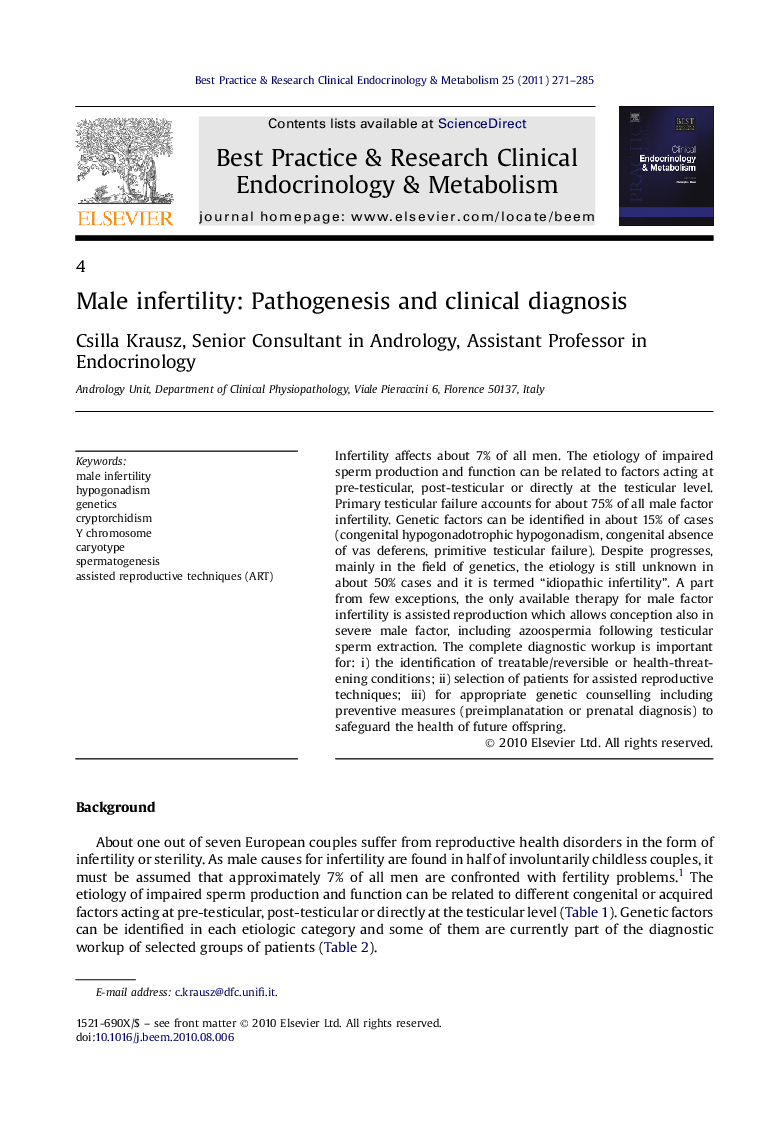| Article ID | Journal | Published Year | Pages | File Type |
|---|---|---|---|---|
| 2792030 | Best Practice & Research Clinical Endocrinology & Metabolism | 2011 | 15 Pages |
Infertility affects about 7% of all men. The etiology of impaired sperm production and function can be related to factors acting at pre-testicular, post-testicular or directly at the testicular level. Primary testicular failure accounts for about 75% of all male factor infertility. Genetic factors can be identified in about 15% of cases (congenital hypogonadotrophic hypogonadism, congenital absence of vas deferens, primitive testicular failure). Despite progresses, mainly in the field of genetics, the etiology is still unknown in about 50% cases and it is termed “idiopathic infertility”. A part from few exceptions, the only available therapy for male factor infertility is assisted reproduction which allows conception also in severe male factor, including azoospermia following testicular sperm extraction. The complete diagnostic workup is important for: i) the identification of treatable/reversible or health-threatening conditions; ii) selection of patients for assisted reproductive techniques; iii) for appropriate genetic counselling including preventive measures (preimplanatation or prenatal diagnosis) to safeguard the health of future offspring.
